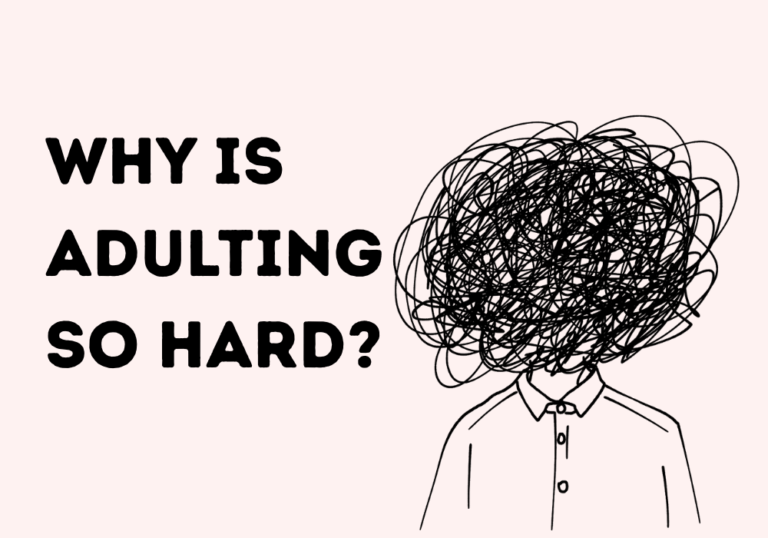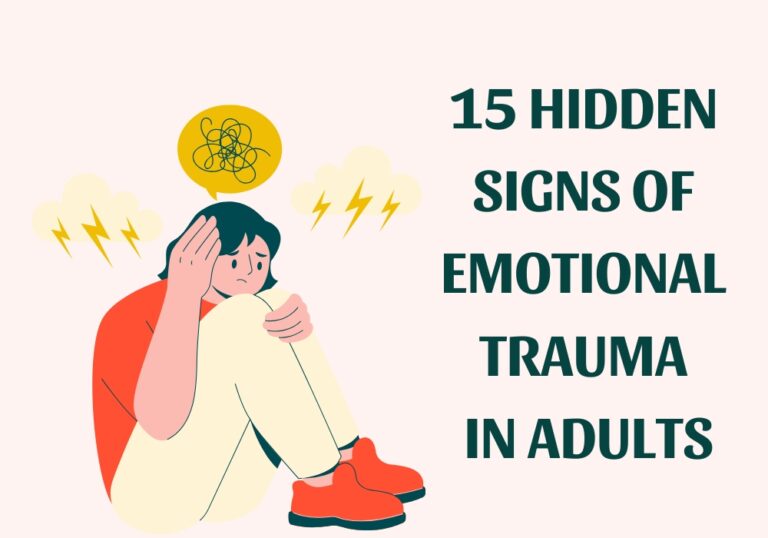What is self-destructive?
Self-destructive behavior is a broad term used to describe a variety of behaviors that are intended to cause physical, psychological, or emotional harm to oneself. This behavior can range from substance abuse and self-harming to more extreme measures such as suicide. It is important to note that not all self-destructive behaviors are suicidal, and it is essential to differentiate between the two. Self-destructive behavior is often a sign of an underlying psychological issue, such as depression or anxiety, and can lead to serious long-term consequences if left untreated. Thus, it is important to recognize the causes of self-destructive behavior and seek help if necessary.
Signs and Symptoms of Self Destructive Behavior:
Some signs and symptoms that may be indicative of self-destructive behavior include:
- Impulsiveness and a lack of self-control.
- Neglecting Responsibilities.
- Chronic self-criticism and low self-esteem.
- Difficulty forming and maintaining healthy relationships. (Sabotaging relationships).
- Chronic feelings of hopelessness, worthlessness, or guilt.
- Self-harm.
- Sabotaging their own happiness.
- Abusing alcohol or drugs.
- Difficulty completing goals.
- Emotional sensitivity or mood swings.
- Feeling depressed & anxious.
- Reckless behavior.
- loneliness.
- Engaging in risky or dangerous activities, such as substance abuse, and excessive drinking.
- Suicidal ideation or attempts.
- victim mentality.
- Constant pessimism.
Causes of Self Destructive Disorder :
Self destructive behavior may be attributed to a variety of causes that could be intertwined and involve psychological, environmental, and biological components. Common causes may include:
1-Mental health conditions:
Those suffering from conditions like depression, anxiety, and borderline personality disorder can be at a greater risk for exhibiting self destructive behavior.
Related: Smiling Depression: The Hidden Pain Behind a Happy Face
Related: 23 Signs of Repressed Childhood Trauma in Adults
2-Substance abuse:
The consumption of substances can bring about self destructive behavior as well as an augmented risk of self-harm, accidents, and other harmful results.
Related: What Are the 17 Symptoms of Complex PTSD?
Related: What Are The 5 Stages Of PTSD: All What You Need to Know
3-Unhealthy eating:
Establishing unhealthy practices concerning eating, either eating too much or too little, can result in developing eating disorders like anorexia or bulimia.
Eating as a result of emotional distress may cause an individual to gain weight, which can not only lead to physical health problems but also mental health issues, such as depression and anxiety.
Related:Emotional Eating:10 Ways To Stop it And Be Mindful Of Your Diet
4-Trauma:
Experiencing serious traumas, such as abuse, neglect, or trauma, can lead to self destructive behavior as a way of dealing with the pain and distress connected to these situations.
Related: 15 Hidden Signs of Emotional Trauma in Adults & How to Heal
Related: 7 Stages of Trauma Bonding: How to Break the Cycle & Heal
5-Self-sabotage :
Individuals with low self-esteem may practice self-sabotage, setting themselves up for failure from the outset. This is because they may not feel they are worthy of achieving success or having good things in their lives.
Engaging in self-sabotage can cost people their relationships, jobs, and other prospects that require taking risks.
Related: Why Do We Self Sabotage? 9 Ways to Overcome It
6-Self-pity:
Self-pity is a type of self destructive behavior that can be carried out without conscious thought. It is destructive because it prevents us from taking a proactive stance toward life and instead encourages us to wallow in our misfortunes.
7-Hiding from emotions:
Ignoring negative (and sometimes positive) feelings can create a variety of psychological, emotional, and physiological issues. This is a more subtle form of engaging in self destructive behavior.
8-Environmental factors:
Environmentally caused issues like stress, lack of support, and not having access to mental health care can raise the risk of self destructive behavior.
How to Stop Being Self Destructive :
If you or someone you know is engaging in self-destructive behavior, it is important to seek help as soon as possible. Here are some steps you can take to stop self-destructive behavior:
1-Understand your triggers:
Self-destructive behavior is never random; there is always a cause and various triggers that bring it forth. By being able to identify what triggers your self-destructive tendencies, you can approach challenging situations with more insight and understanding.
Take a look at your self destructive habits lately. What was going on right before you felt the impulse to do something risky? How did you feel? What kind of thoughts ran through your head? Can you make any connections between the situations or experiences that caused you to act out in a self destructive way?
2-Track your behaviors.
Create a journal of when you take part in any self destructive actions. Not only should the event be noted, but also the accompanying thoughts, feelings, and behaviors (whether constructive or destructive). Maintaining a log of any self destructive behaviors you engage in will enable you to observe any patterns of events, thoughts, and feelings that may surface.
*All-in-one-digital and printable planner
3-Challenge your shame.Self destructive behavior is often rooted in shame. After the momentary sense of relief from such behavior fades away, guilt can overwhelm you for what you have done. But these feelings only add to your emotional pain and strengthen the cycle of self destructive behavior. It is therefore essential to overcome shame.
The best way to eventually move past any feelings of shame is to refrain from mislabeling yourself based on your actions. You can agree that maybe you did something wrong or bad, but that doesn’t make you a wrong person.
If you identify yourself as a bad person, you will start to think that something about you is fundamentally wrong and you will not be able to achieve any improvement. However, if you view yourself as a compassionate, worthy individual who occasionally makes errors, you will be allowing yourself to progress.
4-Make a list of your coping skills: It is essential to understand how to handle these triggers (situations, feelings, and ideas) that can lead to self destructive behavior. Aside from altering your particular thinking, you can also intentionally change your self destructive behavior or replace it with a new activity that is more successful in helping you cope.
Interacting with a higher power, if one is believed in, can be an advantageous way to process and move on from something. Communicating one’s thoughts to a higher source can be a way to acquire clarity.
Find something new to do instead of destructive behavior, for example, Writing, painting, coloring, sports, camping, walking…
5-Turn toward the problem:
One of the most common obstacles in trying to modify one’s life is the tendency to avert our eyes from the problem. However, this only makes the problem worse and worse, and yet despite this, we tend to find ways to distract ourselves as facing the problem can be daunting and uncomfortable. However, this only serves to make the issue more difficult. To escape this cycle, one must be willing to think about it. Take a look at the issue. Acknowledge it. Accept that this is how it is, with the understanding that it can be changed, if one acknowledges it.
6-Learn to believe that you can:
It is only natural to be initially filled with doubts regarding your capacity to remain committed to this change. Do not be discouraged; start anyway. Take small steps for example eat one fruit, get 10 minutes of exercise, and notice that you can do it. Then take another small step. Each time you succeed, use it as evidence that you are able.
7-Use failure to learn:
It is unavoidable that there will be obstacles in life, however, these can be used as learning opportunities. Each time you make a mistake, it offers an incredible chance to grow, refine, and hone your approach. Rather than viewing failure as a hindrance, consider it a valuable source of information to enhance your habit-building methods.
Related:Why Is Failure Important in Life? ‘ 10 Valuable Lessons ‘
Related:Overcoming Failure “10 Tips”
8-Focus on self-love and self-care:
Self-love is an important attitude of compassion towards oneself: it is the exercise of attending to one’s emotional needs. Self-care pertains more to the physical body: it encompasses eating properly, getting enough rest, drinking sufficient water, wearing comfortable clothing, maintaining good health, and so forth. Self-love and self-care are effective allies in the fight against self-destruction.
9-Don’t believe negative self-talk:
You might find yourself having negative thoughts telling you that you can’t do it – do not let these thoughts deceive you. Observe these thoughts, but do not let them lead you astray or make you believe what they tell you.
Your mind is quick to come up with an excuse to dodge hard work. Don’t give in to this lazy, deceitful thought process. Acknowledge these thoughts, but don’t let them cause you to wander off or persuade you that they are right.
Related:The Toxic Effects of Negative Self-Talk
10-Shift your mindset:
It is crucial to recognize that self destructive behavior is a manifestation of neglected inner shadows and core wounds. Be forgiving to yourself and realize that there is a figurative thorn that is irritating you. You are trying to find a way to deal with it, but you lack the knowledge and this can cause self destructive behavior. it’s a determined attempt to ease the suffering you hold inside. By transforming your attitude from culpability and self-condemnation to self-compassion, you will be empowered to make choices that are in harmony with your highest good.
Related:12 Ways to Cultivate a Growth Mindset for Self Improvement
11-Engage in healthy relationships:
The secure attachment of individuals to family, friends, and other relationships is a necessary factor in the recovery from self destructive behaviors. It is important to recognize and reinforce these connections. Dedicate yourself to having meaningful interactions with your loved ones. These interactions could be as simple as talking, walking, playing a game, or even trying a new activity.
Related:15 Signs You Are In a Relationship With a Narcissist
Related:12 Signs Of An Unhealthy Relationship
12-Accept responsibility:
As opposed to pointing fingers at others, we should instead assess how we are contributing to our own self destructive habits. It can be difficult to confront the hurt caused by a challenging upbringing or an abusive relationship, however, we can take charge of our lives by confronting our emotional traumas, aiding ourselves, and overcoming our addictions.
Related:8 Tips on How to Take Responsibility for Your Life
13-Practice Moderation:
If you frequently engage in activities to an excessive degree, such as overeating or overspending, intentionally exercising moderation can be beneficial. One could try methods like portioning your food beforehand, setting spending limits, setting a time limit on social media/gaming/television, and other activities that involve setting limitations. The purpose is to determine how much to partake in before starting so that you can prioritize your goals or values.
14-Set Goals & Write Them Down:
Setting goals using the SMART acronym is an effective technique; it stands for Specific, Measurable, Achievable, Realistic, and Timely. Break down large ambitions into smaller, achievable tasks, and then write them down. Doing this will make them tangible and help to ensure they are achieved.
Related:How To Set Goals and Achieve Them ?
15-Eliminate Pointless Triggers:
Stress is an inescapable part of life. It is up to you to decide how seriously you take the pressures that come your way. You have the power to choose which pressures you will react to.
No matter the decision, there will be pros and cons that come with it. Solutions to your problems may not be perfect or straightforward. It is necessary to accept certain sacrifices to alleviate the stress in one’s life.
Related:Stress :10 Ways to Manage and reduce it
16-Seek therapy:
Talking to a mental health professional can help you understand and work through your emotions and behaviors.
Final :
“It can be difficult to break the cycle of self destructive behaviors, but it is possible to learn healthier habits gradually. Consider adding some of these tips into your daily life and see if they bring beneficial change. If you feel that you require more help, a therapist can supply other forms of aid to conquer self destructive behaviors.”








